Discover the best 4th century authors in our guide: Explore the last days of the Roman empires, the battle between Christianity and older faiths, and much more.
We have precious few surviving manuscripts from the 4th century. The authors we know about chronicled an age of sweeping change, with vast conflicts of ideas, religions, and empires. Everyone was choosing a side, and their decisions would have ramifications for hundreds of years. These are the writers who helped make a difference in this tumultuous time. You might also be interested in reading the best books for American history!
Contents
- 1. Eusebius (Greece)
- 2. Didymus the Blind (Greece)
- 3. Ammianus Marcellinus (Rome)
- 4. Guo Pu (China)
- 5. Libanius (Greece)
- 6. Nemesius (Emesa, a.k.a Syria)
- 7. Lie Yokou (China)
- 8. Ambrosiaster (unknown)
- 9. Iamblichus (Emesa, a.k.a Syria)
- 10. Julian (Rome)
- 11. Su Hui (China)
- 12. Cyril of Jerusalem (Greece)
- 13. Porphyry (Syria)
- 14. Quintus Smyrnaeus (Greece)
- 15. The Nag Hammadi Writers (Egypt)
- 16. Xie Daoyun (China)
- 17. Vegetius (Rome)
- Author
1. Eusebius (Greece)
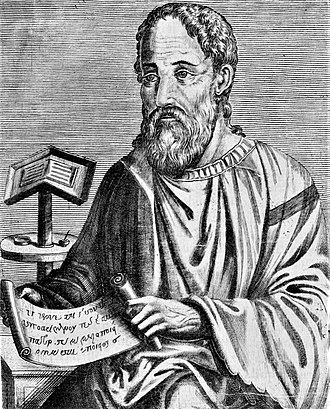
While this period in history is filled with early Christian theologians and professors, often writing down central religious ideas and arguments for the first time, few were as educated as Eusebius. He was uniquely positioned to record historical ideas and fully outline current religious thought, including everything from a biography of Emperor Constantine to Demonstrations of the Gospel.
In his role as a scholar, Eusebius was also not afraid to explore more textual issues than other theologians were willing to admit, as seen in his Discrepancies Between the Gospels. His work is known for being highly accurate. However, unlike many other writers of similar stature, almost nothing is known of Eusebius’ life. We don’t know who his family was or what else he did beyond serving as an apprentice for other scholars earlier in life – adding a little mystery to the man.
- Amazon Kindle Edition
- of Caesarea, Eusebius (Author)
- English (Publication Language)
- 3537 Pages - 12/06/2016 (Publication Date)
2. Didymus the Blind (Greece)

In some ways, Didymus was similar to Eusebiuswith both following similar scholarly paths. However, Didymus took a more theological route and taught in the famed Church of Alexandria, which had a notable school for Christian pupils in the early world.
Because of his blindness, Dydymus never had a chance to learn to read. Still, it’s said that he had an excellent memory and would go over the lessons he had heard repeatedly, considering them carefully. It also seems he worked to find ways for other people with poor sight to learn and communicate, even trying to raise wooden letters like an early form of braille. Historians known enough to know that many of Didymus’ works have been lost, but those that remain are highly valued. That includes On Dogmas, On The Death of Young Children, and First Word.
- Ehrman, James a Gray Professor of Religious Studies Bart D (Author)
- English (Publication Language)
- 304 Pages - 01/01/1986 (Publication Date) - Society of Biblical Literature (Publisher)
3. Ammianus Marcellinus (Rome)
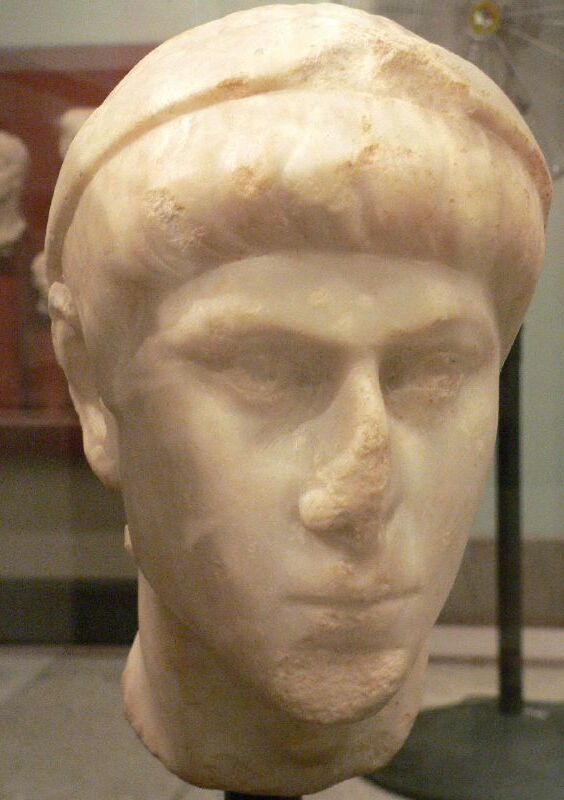
Here’s a name some of you may have encountered in history class: Ammianus was a Roman soldier who eventually became a historian, cataloging some of the most important events in the Roman empire at that time. His writing is some of the best-preserved work we still have from the period, and as such, it’s treasured for its accurate look at the current age.
Ammianus relates not only exciting military ventures serving under Julian but also in-depth histories of the time, as seen in works like Res Gestae, which was originally 31 books of a complete history. Unfortunately, a number of the early books in the series have been lost to time. He is also notable as a pagan writer of the time, referring to Christianity as a simple religion that often appeared hypocritical due to infighting and violence.
- Used Book in Good Condition
- Hardcover Book
- Ammianus Marcellinus (Author)
- English (Publication Language)
- 640 Pages - 01/01/1950 (Publication Date) - Harvard University Press (Publisher)
4. Guo Pu (China)
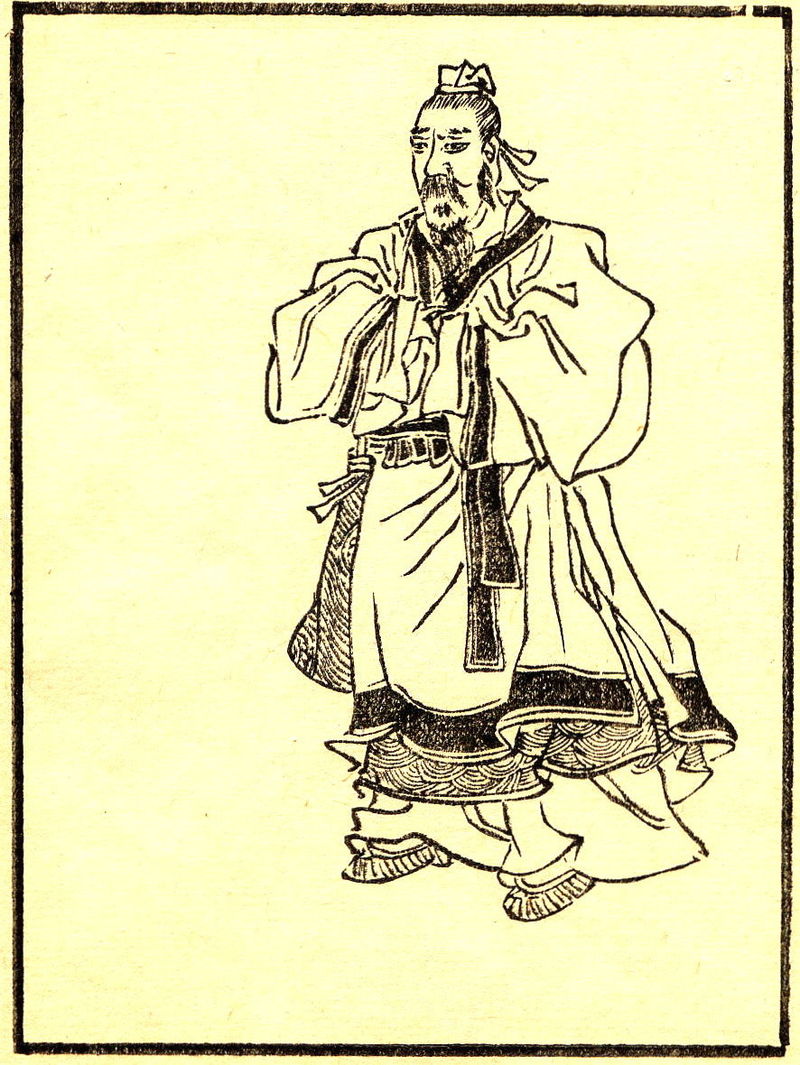
Guo Pu rose quickly in the ranks while serving as a Dao mystic and diviner, including providing forecasting services to the military. He was eventually appointed to court due to the success of his divination and corresponding war victories – but interpreting omens is always risky work. A warlord eventually executed Guo after being unable to find any mystical support for his plan to take the Eastern Jin Throne.
It may seem strange to include a diviner in our list of best authors, but Guo Pu was also a prolific writer and scholar, one of the greatest of his age. He wrote not only extensive commentaries on past literary works but also created several ancient dictionaries. His commentaries were treasured and well-preserved and are often the only source of the ancient texts he was critiquing. He also wrote poetry and recorded historical events of the Sui dynasty.
- Yuan, Hong (Author)
- English (Publication Language)
- 177 Pages - 01/15/2020 (Publication Date) - Independently published (Publisher)
5. Libanius (Greece)

Libanius was a popular Sophist teacher originally born in Antioch. He remained firmly devoted to Sophistry and rhetoric throughout his life. When the emerging Christian church dominated the Roman empire, he made it a point to remain unconverted, using his rhetorical skills to support specific movements and politicians that he thought were worthy.
In that regard, Libanius was a big advocate of the city-state era of Greece, disliked the overall authoritarianism of the Roman empire, and called out the empire for the persecution of other pagans and the destruction of their ancient temples. His many letters (over 1,500), speeches, and education lessons give an excellent look at a world being forcibly taken over by religion. Indeed, he was so well-regarded that even well-known Christian theologians were among his pupils.
- Used Book in Good Condition
- Hardcover Book
- Libanius (Author)
- English (Publication Language)
- 544 Pages - 01/01/1992 (Publication Date) - Harvard University Press (Publisher)
6. Nemesius (Emesa, a.k.a Syria)

Nemesius represents a very interesting fusion between Christianity and natural philosophy that was somewhat unique to this era. He served as a bishop, but as a scholar. His interests were primarily medical, and his most famous text is De Natura Hominis, or On Human Nature.
In his book and similar writings, he synthesized the ideas of Aristotle and Galen to expound on the workings of biology and the human body and added biological support for the Christian idea of the human soul. That may sound odd, but Nemesius was very influential in his day. He even predicted something like the concept of blood circulation and the idea that different parts of the brain were responsible for different things.
- Hardcover Book
- Dusenbury, David Lloyd (Author)
- English (Publication Language)
- 240 Pages - 10/20/2021 (Publication Date) - Oxford University Press (Publisher)
7. Lie Yokou (China)

The Liezi is a famous Daoist historical text and is the lesser-known of the foundational trilogy also included the Dao De Jing and Zhuangzi. While not much is known of the author at this time, it is assumed to be the philosopher Lie Yokou, or at least based on his teachings that were later compiled by his students (some even claim that it is a forgery from a later scholar using his name).
Over time, the Liezi was consolidated into eight volumes and considered one of the most practical Daoist guides. Each chapter focuses on key subjects of Daoist philosophy. Interestingly, while its related books are widely circulated in the West, few relative translations of the Liezi make it more difficult to find.
- Yukou, Lieh (Author)
- English (Publication Language)
- 72 Pages - 06/15/2021 (Publication Date) - Independently published (Publisher)
8. Ambrosiaster (unknown)

Technically, there is no Ambrosiaster, despite how fun the name sounds. Instead, this is a pseudonym given to the writer of a famed collection of commentaries on the works of Paul. It was once thought to be the work of St. Ambrose, and when this was eventually disproven, a new name emerged – the author’s true identity is still unknown. This famed Commentary not only proves that early Latin works of the New Testament existed but also shows the key evolution of Christian thought during this time and the ideas that would eventually be argued, dismissed, or taken as doctrine.
- Theodore S. de Bruyn (Author)
- English (Publication Language)
- 440 Pages - 11/10/2017 (Publication Date) - SBL Press (Publisher)
9. Iamblichus (Emesa, a.k.a Syria)
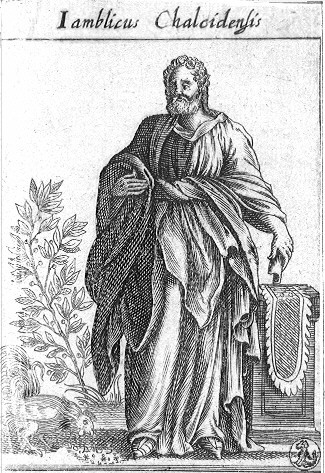
Students of philosophy and history may recognize Iamblichus, a scholar connected to a royal family who devoted himself to pursuing knowledge and apprenticeships under philosophic masters – including some of the other writers on this list. Iamblichus is known for his biography of the famous mathematician Pythagoras and unique works such as Protrepticus, which preserved Sophic thought for later ages, as well as his ascetic Exhortation to Philosophy.
- Amazon Kindle Edition
- of Chalcis, Iamblichus (Author)
- English (Publication Language)
- 841 Pages - 07/26/2021 (Publication Date) - Delphi Classics (Publisher)
10. Julian (Rome)

In the section on Ammianus, you may have noticed the historian was a big fan of Emperor Julian. Julian himself, however, was an acclaimed philosopher, writer, and royalty. His preserved works give us valuable knowledge about the working of the empire at that time and how leaders played politics to help assume power. Julian was directly related to Constantine, but his view of Christianity couldn’t have been more different. Much of his surviving work concerns the defense of pagan thought, complaints about early Christian violence, and similar topics.
- Julian (Author)
- English (Publication Language)
- 116 Pages - 10/27/2022 (Publication Date) - Legare Street Press (Publisher)
11. Su Hui (China)
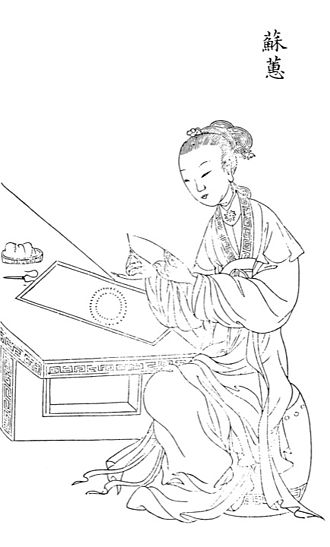
We have very few surviving works from women in the 4th century. But one very notable example is the creation of the poet Su Hui. She was fortunate enough to be born into an educated family and marry a provincial governor in the new state of Former Qin.
If you are interested in reading Su Hui, things get interesting: Her most famous work is the creation of a complex palindrome poem sown into brocade and designed to be read in a circle. The creation was so striking that it was imitated for long after, although Su Hui is generally considered the best. That also means that it’s much easier to read about Su Hui’s art than actually to read the original work. Fortunately, there are still excellent references.
- Metail, Michele (Author)
- English (Publication Language)
- 312 Pages - 03/14/2017 (Publication Date) - New York Review Books (Publisher)
12. Cyril of Jerusalem (Greece)

Cyril is another semi-mystery among the early Christian writers: We know very little of his life and relationships until he entered service in the Church of Jerusalem, where he was eventually promoted to be the successor of the current bishop, Macarius. In that position, Cyril faced a difficult era. He was at odds with Acacius of Caesarea, who appeared jealous of Jerusalem’s importance, and subjected Cyril to various criminal charges.
Cyril also had to balance relations with the latest emperors, who were being influenced by more antisemitic factions of the church. This, among other factors, made them consider the leader of Jerusalem’s church less favorably. That, in turn, led to several different periods of exile for Cyril. He eventually returned from each, and his faith remained unshaken. His theological work became highly regarded for its clarity and included a number of important lectures on faith.
- of Jerusalem, St Cyril (Author)
- English (Publication Language)
- 230 Pages - 09/08/2015 (Publication Date) - Beloved Publishing LLC (Publisher)
13. Porphyry (Syria)
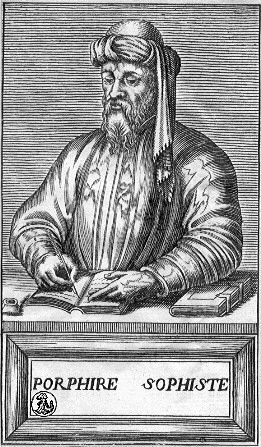
This Neoplatonic philosopher inspired many others and was well-known as a jack-of-all-trades, writing on many intellectual topics. Old accounts report that he was born in Tyre, of Greek and Syrian lineage, although he counted Aramaic as his native language. He studied in Rome and became a model philosopher for the next generation.
His works include The Enneads, an account of his teacher, a commentary on Euclid, a treatise on vegetarianism – Porphyry experimented with diets that poorly affected his health after a time – and more. His Isagoge was used as a logic textbook for centuries, and his Philosophy from Oracles shows his battle against early Christians.
- Salem, Feryal (Author)
- English (Publication Language)
- 168 Pages - 02/19/2022 (Publication Date) - Blue Mountain Press (Publisher)
14. Quintus Smyrnaeus (Greece)
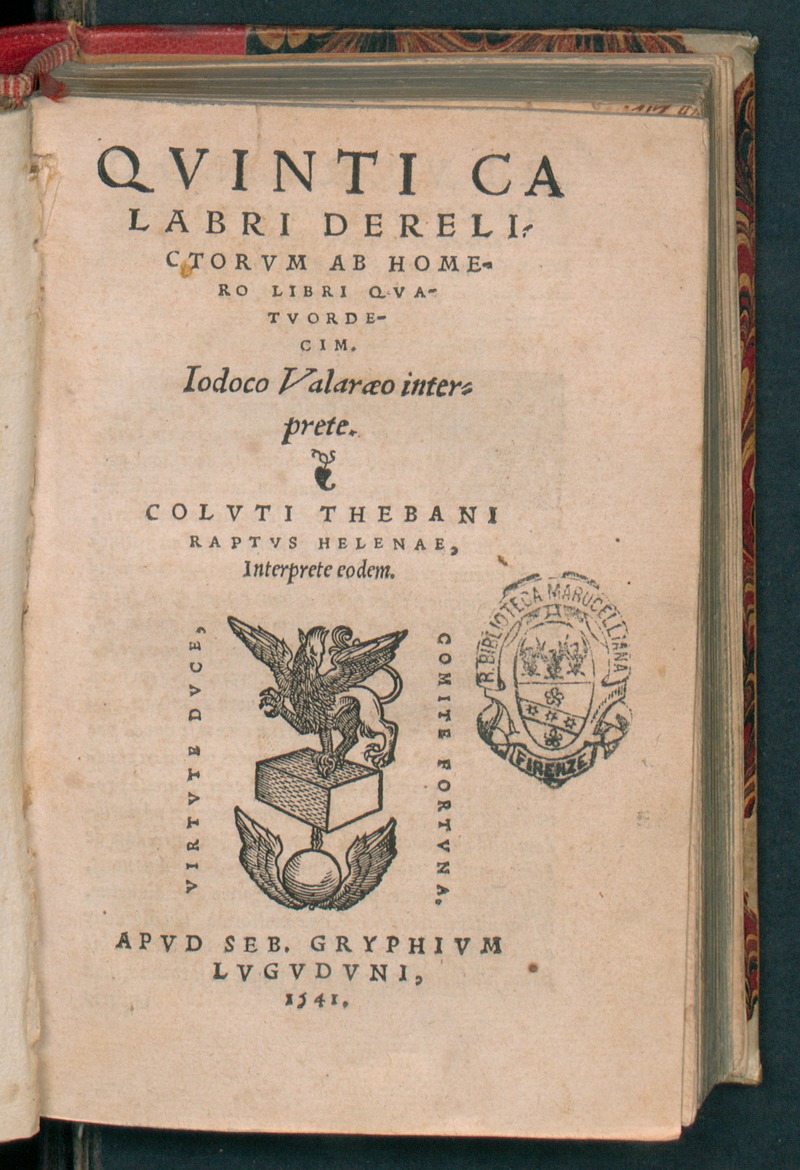
If philosophy and religious conflicts aren’t very interesting, Quintus will be a breath of fresh air: This famous poet is responsible for the Posthemerica, or literally After Homer. As the name suggests, he carries on the tale of The Iliad and covers all the events leading to the end of the Trojan War. That makes him an excellent read for fans of ancient Greek work. Beyond his epic poem, very little is known about Quintus, except that he most likely lived in the 4th century and that a Christian poet, Dorotheus, once identified himself as Quintus’ son.
- Hardcover Book
- Quintus Smyrnaeus (Author)
- English (Publication Language)
- 768 Pages - 06/01/2018 (Publication Date) - Harvard University Press (Publisher)
15. The Nag Hammadi Writers (Egypt)

We don’t know the exact names of the writers of the Nag Hammadi texts because the library was buried and sealed for many centuries before its discovery in 1945. They appear to be related to an isolated group of Gnostic Christians, writing in the Coptic language but long since lost to history.
The result is unique writings, some of which cannot be found anywhere else, and Christian churches today generally consider them apocryphal or heretical texts. That includes The Gospel of Thomas, sayings attributed to Jesus, the Apocryphons of John and James, and many others.
- English (Publication Language)
- 844 Pages - 05/26/2009 (Publication Date) - HarperOne (Publisher)
16. Xie Daoyun (China)

In young Xie Daoyun’s family, her uncle would teach and quiz the children on literature, tests where she quickly showed her skill in knowledge and debating prowess. During a later rebellion, she was famed for going out to meet the rebels that had just killed her husband and fighting several to the death before being taken, prisoner.
She was later released to live with her husband’s family. Aside from these adventures, she also gained acclaim as a poet and writer. However, much like Su Hui, we have more works about her than remaining writing from her, so the best place to start may be The Three Character Classic, which includes her story.
- Wang, Yinglin (Author)
- English (Publication Language)
- 70 Pages - 05/29/2016 (Publication Date) - CreateSpace Independent Publishing Platform (Publisher)
17. Vegetius (Rome)

Vegetius is even more mysterious than some of the other writers on the list: We don’t know much about him, except that he authored two essential writings in the 4th century. Those were the Epitoma rei militaris and the Digesta Artis Mulomedicinae. The former was a treatise on Roman military tactics and how the army was decaying, and the latter was a veterinarian working with advice on how to care for animals.
Works like these are excellent for writers setting their novels in the latter stage of the Roman empire and want more on-the-ground details to make their work authentic. Vegetius lists interesting details on siege weapons, navy equipment, the dangers of military decadence, and much more. Interested in digging into other historical information? Look at our guide to the best books for Greek mythology!
- Renatus, Flavius Vegetius (Author)
- English (Publication Language)
- 112 Pages - 04/16/2012 (Publication Date) - Leonaur Ltd (Publisher)
